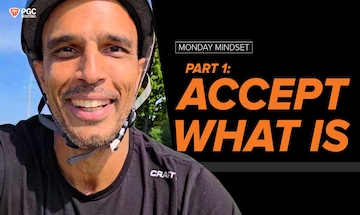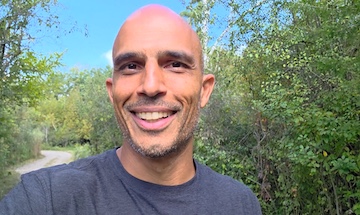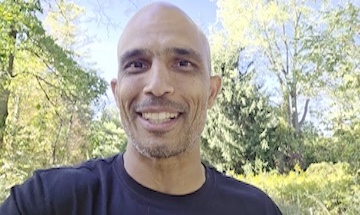Developing a Positive Team Culture
I recently spent the day at the Psychology of Coaching Teams Conference in Boston, MA. It’s an all day event for coaches of any sport and it features some great speakers with vast experiences. I was speaking on behalf of Point Guard College along with one of my co-workers, Mara Schanfield. More importantly, what I always look forward to the most is the shared learning and professional development that you get out of these types of experiences. I am committed to a life of education that is fueled by my insatiable hunger for growth. I find myself growing on a daily basis, but it’s events like these that really fuel my fire.
Our 75-minute presentation was titled, “A Coach’s Role in Impacting Team Culture”. We shared some key points about how the culture of your team can be established, reinforced, and even reinvented, through your team’s basketball practices. The two main areas that support this belief come from Point Guard College’s brilliant founder, Dick DeVenzio, and also from watching some of the top basketball coaches in the country at the high school, college, and professional level. We have identified some of their championship-level habits in developing the top players and creating the best basketball teams.
A simple formula we’ve come up with is the following:
Successful Team Culture =
Procedures + Progressions + Precision + Patience
- Procedures are the actions which have to be executed in the same manner in order to obtain the same result. In a prior blog (‘What I Learned from Coach Krzyzewski’), I shared the various procedures you can use with your basketball team to develop daily consistency and expectations throughout the program. Establishing procedures within your program allows you to maximize your time as a basketball coach. While this can create some temporary inconveniences, it will lead to permanent improvement.
- Progressions are a series of activities or drills with a definite pattern of advancement. It’s important for coaches to progress through drills in a way that will ‘make sense’ to the athletes. During our summer basketball programs and year-round clinics, I find it especially helpful for basketball players to progress through teaching using this model:
- Give instruction that describes the organization of the drill — Provide the rules for the drill — Give them the points of emphasis — Remind them of the intangibles (i.e. how to lead themselves, enhance the drill, and ignite their teammates)
- In providing your athletes with the points of emphasis, stick to the ‘Rule of 3’ and explicitly state what you are looking for.
- Precision means having a ridiculous attention to detail. As coaches, we have to understand: we teach what we emphasize. In my experience, it’s quite apparent that the best coaches in the world demand a high level of ‘exactness’ from their basketball players at all times.
- Patience is required once the above three items are put into play. Be honest… What drives you crazy as a coach? What causes you to slam the clipboard or throw the whistle? Every good coach has a long list. I think of Dick DeVenzio’s “Responsibility Principle” from Runnin’ the Show that places the responsibility on coaches to be bigger than shortsighted frustrations. Essentially, the thought is: don’t put yourself through a whole season being irritated by the things you failed to explain. Do you lose your patience because your players performed the drill wrong or because you failed to properly explain the basketball drill? It’s our job as coaches to teach with clarity and to ensure we communicate exactly what we want at all times. But, be patient. Have a persistence to your patience. Model the qualities that you want to see embodied in the culture of your team.
After watching both the Duke men’s basketball and Connecticut women’s basketball teams practice this year, it’s quite obvious why both basketball programs won NCAA national championships. In their practices, this formula held true. The daily procedures were run, the progressions made complete sense, the precision was phenomenal, and each coach was patient enough to explain something to their players that was not understood.
Related Articles
Monday Mindset: Part 1: Accept What Is
Life rarely goes as planned—when it doesn’t, lean in, accept what is, and you might just find yourself laughing along the way.
Monday Mindset: How to Reduce Stress
Feeling stressed? Try these 3 simple ways to reset your mind and calm your body, anytime, anywhere.
Monday Mindset: Stop Judging Yourself
Nothing kills confidence like self-judgment. Discover 3 simple mindset shifts to stop putting yourself down and start accepting who you are – right now.”
About PGC
PGC Basketball provides intense, no-nonsense basketball training for players and coaches. Our basketball camps are designed to teach players of all positions to play smart basketball, be coaches on the court, and be leaders in practices, games and in everyday life.
We combine our unique PGC culture with a variety of teaching methods and learning environments to maximize the learning potential of those that attend our sessions. In addition to spending 6-7 hours on the court each day, lessons will be reinforced through classroom sessions and video analysis.
Our goal at PGC is to empower you with the tools to fulfill your basketball dreams, while also assisting you in experiencing the joy of the journey.
To learn more about PGC Basketball, including additional basketball training tips and videos, visit our YouTube Channel or find us on Facebook, Instagram, and Twitter.




Share This Post